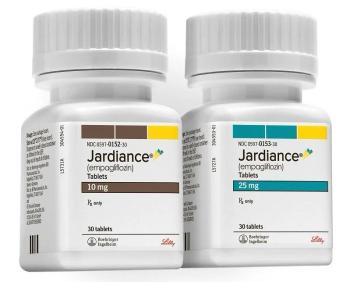
Javed Butler, MD, MPH, MBA, said "hopefully" results from the EMPACT-MI trial should be available within the next few months.

Javed Butler, MD, MPH, MBA, said "hopefully" results from the EMPACT-MI trial should be available within the next few months.
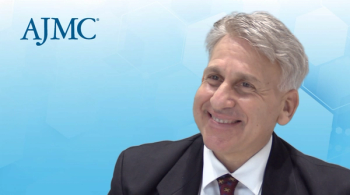
There is a lot of drug switching that's happening, whether it's for medical or nonmedical reasons, said Steven Deitelzweig, MD, system chairman of hospital medicine at Ochsner Clinical School, professor of medicine at the University of Queensland.
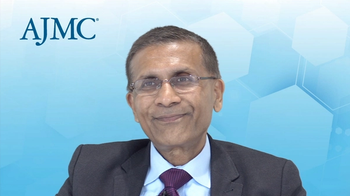
With nearly a third of patients post-myocardial infarction (MI) developing heart failure, prevention is very important, said Javed Butler, MD, MPH, MBA, professor of medicine at University of Mississippi, president of the Baylor Scott & White Research Institute.
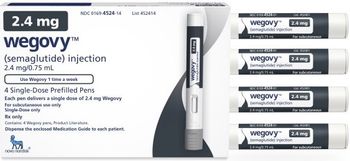
Patients who took the therapy lost weight and recorded some of the best gains in quality of life and physical improvement ever seen in this type of a study.

The interim update in heart failure reflects results from 10 clinical trials that have been published since the 2021 ESC Guidelines were released.

Lucio Gordan, MD, president and managing physician, Florida Cancer Specialists & Research Institute (FCS), discusses how FCS has learned to adapt during difficult times, including COVID-19, Hurricane Ian, and current drug shortages.

Attendees should look out for results from the STEP HFpEF program and HEART-FID trial at the European Society of Cardiology (ESC) Congress 2023, said Stephen Greene, MD, Duke University Medical Center and the Duke Clinical Research Institute.

Data from the 1999-2018 National Health and Nutrition Examination Survey were used to analyze the prevalence of social determinants of health (SDOH) among patients with self-reported heart failure (HF).

Ahead of the European Society of Cardiology (ESC) Congress 2023, John McMurray, MD, FRCP, FESC, professor of medical cardiology at the University of Glasgow, previews some themes and important topics that will be discussed at the meeting.
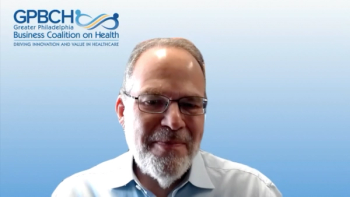
Neil Goldfarb, president and CEO of the Greater Philadelphia Business Coalition on Health (GPBCH), previews the upcoming GPBCH Wellness Summit taking place on September 14, 2023.

The European Society of Cardiology (ESC) 2023 Congress runs August 25-28 in Amsterdam, the Netherlands.

Data on 10 social determinants of health (SDOH) were analyzed to determine their distribution among low-income patients hospitalized for heart failure (HF) at a safety-net hospital.

Study authors investigated the effect of physical activity as a modifiable risk factor among individuals living with high-risk hypertension in this subanalysis of data from the Systolic Blood Pressure Intervention Trial (SPRINT).

Stephen Nicholls, PhD, MBBS, Monash University and Victorian Heart Hospital, explains how he works closely with patients and study sites in SURPASS-CVOT to avoid weight loss drug discontinuation and weight regain.

Sheila Garland, PhD, MSc, Memorial University in Newfoundland, Canada talks about the cognitive effects cancer can have on patients, beyond treatment side effects, and the direct impacts these can make on patients’ lives and care.

Post heart failure (HF)–related hospital discharge care was investigated among patients through evaluation of usage rates of the Heart Failure Health Storylines mobile health application.

Findings were presented by researchers from the UC Irvine Health School of Medicine at the 2023 American Society for Preventive Cardiology's Congress on CVD Prevention.

G.B. John Mancini, MD, University of British Columbia, goes into detail about the recruitment process of the VICTORION-2-PREVENT trial, which focuses on inclisiran to reduce cardiovascular risk.

Outcomes for in-hospital mortality were compared between adult patients, women vs men, among those who had both acute myocardial infarction (AMI) and heart-related mechanical complications (MC).

Stephen Nicholls, PhD, MBBS, Monash University and Victorian Heart Hospital, expands on the patient characteristics and potential impacts of COVID-19 on SURPASS-CVOT, the phase 3 cardiovascular outcomes trial for tirzepatide.

Dayna Johnson, PhD, MPH, MSW, MS talks about the necessity of community partnerships as the recipient of this year’s Associated Professional Sleep Societies (APSS) Diversity, Equity, and Inclusion Leadership Award at SLEEP 2023 and how inquiring into the community is vital for integrating healthy sleep practices.
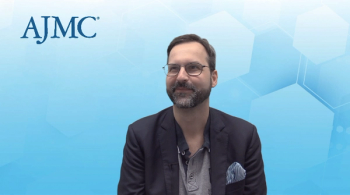
Data from the Survey of Unmet Needs in Chronic Myeloid Leukemia (CML SUN) trial show that quality of life (QOL) and shared decision-making are priorities for patients, said Fabian Lang, MD, of Goethe University Hospital in Frankfurt, Germany.

With a broad research focus on heart disease risk reduction through the development of novel treatment strategies, Stephen Nicholls, MBBS, PhD, Monash University and Victorian Heart Hospital, Melbourne, Australia. discusses contributions in the space from therapies with systemwide effects.

Emelia J. Benjamin, MD, ScM, Boston University Chobanian and Avedisian School of Medicine, is the recipient of this year’s Honorary Fellow of the American Society for Preventive Cardiology award. Here she describes what atrial fibrillation is, how the condition announces itself, and why this area of cardiovascular medicine is receiving so much attention.

The ASPC Congress on CVD Prevention is taking place in Arlington, Texas, July 21-23. Here, G.B. John Mancini, MD, University of British Columbia, emphasizes the importance of having an international perspective on preventive cardiology.
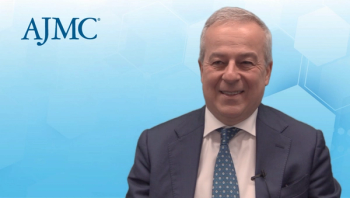
Franco Locatelli, MD, PhD, head of the Department of Pediatric Hematology and Oncology at IRCCS Bambino Gesu Children’s Hospital in Rome, discusses the treatment of both adult and pediatric patients with chronic graft versus host disease (cGvHD).

Judite Blanc, PhD, is lead author on the abstract, “Social Determinants of Sleep Disorders Among Multiethnic Americans in the NIH All of Us Research Program,” which was presented on June 5th at the SLEEP 2023 conference.
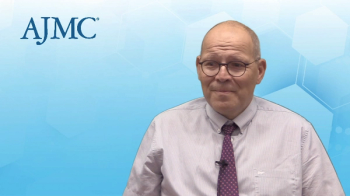
Wojciech Jurczak, MD, PhD, head of the Department of Oncology at Maria Sklodowska-Curie National Research Institute of Oncology, discusses the changing therapy landscape for relapsed or refractory diffuse large B-cell lymphoma (DLBCL).

The ASPC 2023 Congress on CVD Prevention will take place in Arlington, Texas, from July 21-23, and in this interview, President-Elect Michael Shapiro, DO, FASPC, runs down what attendees should look most forward to this year.

Martin Griesshammer, MD, PhD, Johannes Wesling University Clinic, discusses past and current efforts to improve treatment options for patients with polycythemia vera.

259 Prospect Plains Rd, Bldg H
Cranbury, NJ 08512
© 2025 MJH Life Sciences®
All rights reserved.
